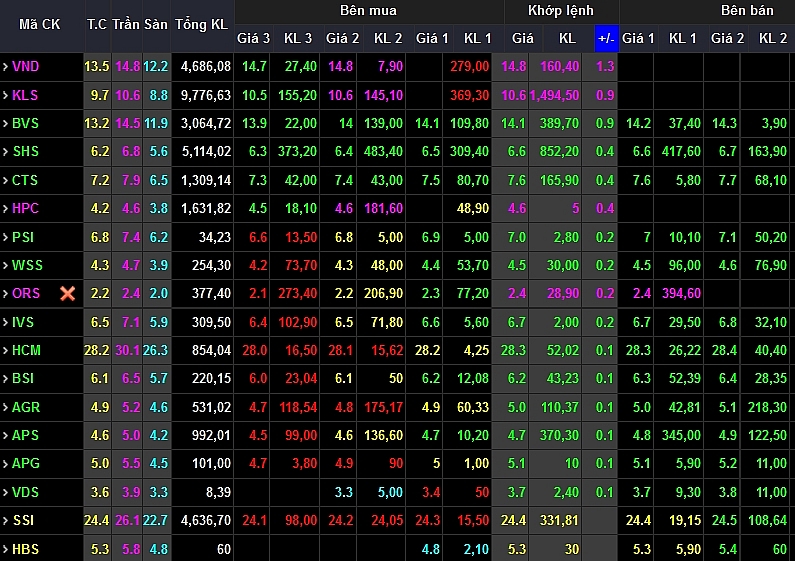Foreign capital on its way to bourses
 |
| Foreign capital on its way to bourses, illustration photo |
A growth story
To many investment funds, the appeal of Vietnam as a fast-growing market is an obvious one. The national GDP is expanding by over 6 per cent per year, inflation stays under control, and half of the population is under 30 years old. They are also eager consumers, helping to boost the domestic economy that used to be export-led.
Recent major deals include the initial public offering of Vincom Retail, which raised an historic amount of $700 million. Commercial banks have also seen recent success, for example Techcombank collecting $370 million right before the IPO and HDBank drawing in $300 million from 76 investors. Leading state-owned enterprises Binh Son Refinery and PV Power also held successful share sales in early 2018.
In 2017, foreigners bought $1.5 billion worth of shares on Vietnam’s stock exchanges and poured in $6.2 billion of indirect investments in total. This represents a 45 per cent increase from the previous year.
The amount of foreign indirect funds in the first two months of 2018 already reached $1.2 billion, promising another strong year of inbound capital for Vietnam, according to securities firm Maybank Kim Eng.
At the Invest ASEAN conference held by Maybank Kim Eng in Singapore in late March, excitement about Vietnam was in the air. Mikael Olausson, investment advisor at Adepa Asset Management, said he met many Vietnamese companies at the conference as Adepa is actively looking to invest in the country. The focus for the Luxembourg-based fund is listed firms with good growth prospects, particularly mid-cap names that have yet to be courted by other foreigners.
“Many investors are shifting to Vietnam, as they have realised that this frontier market offers a good growth rate that people can capitalise on. I’ve seen funds that previously focused on China or Thailand now moving their investments to Vietnam, and we’re also doing in-depth research on a number of promising Vietnamese companies,” Olausson told VIR. The investor added that he does not have any favourite sectors in mind, but the top choices would be consumer goods, real estate, and banking.
Yeu Huan Lai, senior portfolio manager at Nikko Asset Management, said that Vietnam will make great steps forward with the government’s reform agenda. The fund already invests in Vietnam and the country now takes up 10 per cent of Nikko’s $18 million ASEAN Equity Fund. According to Lai, the most investable companies are those that benefit from Vietnam’s domestic consumption boom, including food and beverages, banking, travel, and even petroleum.
“By and large, investor relations at Vietnamese companies are improving. In terms of valuation, Vietnam can be more expensive than it was before, but when you compare the country with other ASEAN markets, it’s actually fairly priced thanks to strong economic expansion and faster earnings-per-share growth,” Lai told VIR.
Lai hoped to have easier access to some companies, which still retain their foreign ownership limit. Recent financial products such as covered warrants also provide investors with more choices in the market. But the most important thing to look forward to, Lai said, are ‘catalyst events’ such as the upcoming initial sales of major firms, merger and acquisition activities, and state divestments.
Areas of concern
Despite their optimism about the Vietnamese market, investors remain concerned about a number of factors. The first is escalating trade friction between the US and China, which may lead to a global trade war. However, most funds believe that ASEAN and Vietnam will benefit from shifting investment and trade away from China, as well as China’s moving up the global supply chain system. Recent free trade agreements with various partners such as the EU and Korea will also help Vietnam move forward, said Ngo Dang Khoa, head of global markets at HSBC Vietnam.
“Most foreign investments in Vietnam are long-term and focused on the country’s growth prospects, rather than day-to-day speculations. A stable VND against a weakening USD is another incentive for foreigners,” Khoa noted.
Other investors want Vietnam to have higher levels of liquidity, as well as put more high-profile companies up for grabs. Rajiv Vijendran, regional head of investment banking and advisory at Maybank Kim Eng, told VIR that due to the scarcity of some stocks and low liquidity, his clients usually had to buy Vietnamese shares at a premium and even then, the purchase is not guaranteed.
“This difficulty will put off many investors. In general, funds want stock with good liquidity, strong corporate governance, and fair valuations, when stacked against their growth potential,” said Vijendran. The investment banker believes that it is a matter of time before Vietnam becomes an emerging market, which is a test to see if the country can retain its current appeal when faced against hundreds of other markets.
What the stars mean:
★ Poor ★ ★ Promising ★★★ Good ★★★★ Very good ★★★★★ Exceptional
Related Contents
Latest News
More News
- Cashless payments hit 28 times GDP in 2025 (February 04, 2026 | 18:09)
- SSIAM and DBJ launch Japan Vietnam Capital Fund (February 04, 2026 | 15:57)
- Banks target stronger profits, credit growth in 2026 (February 04, 2026 | 15:43)
- Vietnam on path to investment-grade rating (February 03, 2026 | 13:07)
- Consumer finance sector posts sharp profit growth (February 03, 2026 | 13:05)
- Insurance market building the next chapter of protection (February 02, 2026 | 11:16)
- NAB Innovation Centre underscores Vietnam’s appeal for tech investment (January 30, 2026 | 11:16)
- Vietnam strengthens public debt management with World Bank and IMF (January 30, 2026 | 11:00)
- Corporate bond market poised for stronger growth cycle (January 28, 2026 | 17:13)
- Vietnam's IPO market on recovery trajectory (January 28, 2026 | 17:04)

 Tag:
Tag:




















 Mobile Version
Mobile Version